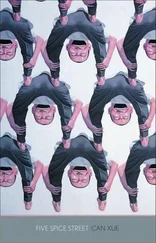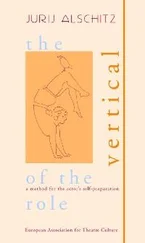Lai jumped up, saying, “You fool, you fool,” and hurriedly left.
It was broad daylight. I had nothing to do. I felt time hanging heavy on my hands. I wanted to revivify myself. I took a cold shower and did thirty push-ups. Then I rushed outside with my umbrella. I ran straight to the end of the street, turned onto another street, ran to the end of it, and then ran home. While I was running, heavy rain fell onto my umbrella like a chorus: “Elena! Elena!”
I belong to the moonlight; the lion belongs to the darkness. The strange thing is that the lion is always walking back and forth, bathing in the moonlight in the wasteland, and I am generally tilling the humus soil with the earthworms. I only till, never harvest. Sometimes, I work my way out of the ground to stand beside the shrubs and wait. When a bat stops to rest, I jump onto her back. Then, carrying me, she flies to the ancient cave. I don’t want to describe my experience in the dark cave: it’s a place eerier than hell. Even in the daylight, every now and then the tragic cry of slaughter comes from the cave. I wait in the cave until nightfall, when my friend carries me on her back and flies toward the forest. When she stops on a pine tree, I leap to its highest branch. From there, I look out: the wasteland undulates in my field of vision, and the lion is anxiously looking for food. His objective is the zebra on the opposite shore of the stream; my objective is the lion. But why does he never attack? Does he like the high he gets from being dominant?
It’s dark, and my friend has flown off. The branch is swaying in the wind, and I am holding on to the branch, clinging to it with my belly. I imagine myself canoeing in the ocean. The moon has risen, and I see the lion at rest. The zebra is resting, too. Only a shallow stream separates them. How does the lion dispel his hunger pangs? This is his secret, and it is also my secret question. The moonlight dyes his long mane silver. His face is as ancient as the rock beside him. I’m enthralled by his face, but his face also troubles me day and night, because I can’t find the solution.
The forest becomes noisy, as usual: in the moonlight, these fellows won’t be quiet. There are all kinds of sounds everywhere. Branches crack with a sound so vigorous that it’s as if they want to turn the entire forest into ruins. Luckily, there are fireflies here — so many that they stream like waves of stars before my eyes. Some — the wingless ones — pause on the withered leaves on the ground and shine silently. Their light can reflect only a little spot under their feet. These are blind insects. I once tried to lure these wingless fireflies to go with me into the earth. They ignored me; they’re too proud. It can also be said that they are complacent and self-sufficient. Their idea is that they till their own bodies. The lion has turned around; his back is to me now: what a sorrowful view it is. Now, even the zebras are in a stupor; trusting to luck, they’ve entered dreamland.
On vast Mother Earth, silhouettes of some other lions have emerged. They aren’t real lions, but a trick of the moonlight. These illusions form a single line, extending to the horizon. Have you heard the lion weep? No, the lion’s weeping is inaudible. My vision is blurred, and I’m weary from standing on a high place. I have to go down. Once I’m mixed in with those noisy fellows in the night, I relax, body and soul.
I know that my friend is working right now, so I’d better walk back. I walk a very long time before reaching the land I was tilling. In the moonlight, the large expanse of dark earth looks a little like a gloomy graveyard. A heap of wingless fireflies is assembled below the bosk. What is this all about? Is it some kind of ceremony? The heap of tiny fires was gleaming, and gradually grew dark! They burned up their inner fire beside the land I was tilling. These tiny insects had limited choices. I smelled the charred flesh: the odor left me in a bad mood. From the cave, I burrowed underground. I slept as I tilled. Sometime in the middle of the night, I encountered the earthworms. There were two of them — one above me and one below me, and they kept advancing along with me. It was always like this. I couldn’t see the earthworms, and yet they were always with me. As soon as they came toward me, I sensed them at once, for in the depth of the soil, the sensors were subtle. I could even sense their mood. The one above me was brimming with enthusiasm; the one below me was a little depressed. They were both time-tested believers. What did they believe in? They believed in everything, just like me. It was a faith born of the source. We were the moonlight school. The dark field was the place where we carried out our faith. I am going to fall into a dream: I knew I would dream of my grandfather. Neither an animal nor a plant, my grandfather was a little like the ocean’s coral. But he was born in a place deep in the earth. In his lifetime, he couldn’t move. He was always in the same place, thinking, thinking. After he died, it is said that his body fossilized in the place right under where I’m tilling — deep down, very, very deep. There will always be a day.
=
I awakened. It was another day. Without emerging from the ground, I felt the heat from the sun’s rays. I was anxious to know how the lion was doing. When I left him the day before, he was weeping. As soon as he wept, my brain went blank. He was so gloomy inside. Why did I care so much about him? Because he was king of the earth? Or was there another reason? Anyhow, my caring for him was connected with my faith: I hadn’t chosen this; rather, I had been born with it. I couldn’t go out yet, for my skin couldn’t stand the sunlight. I had to get a lotus leaf from the pond beside the field and cover my head with it.
As I was swimming in the pond, I saw the corpses of many winged fireflies floating on the surface. Alas, those corpses of the moonlight nearly brought me to tears! I selected a lotus leaf, placed it on my head, and swam to shore. Something in the water pulled at my foot: it was an old fish who lived at the bottom of the pond. I was too weary to go to his home. The old fish was the most boring fellow in the world, and his home wasn’t like a home, either: it was no more than a clump of water-weeds in the silt. Most of the day, he was in a daze as he squatted in the clump of water-weeds. He didn’t think about anything; he was a fish devoid of any thought. He called me “the tiller”; I knew that was a slight. He also called my work “repairing the globe.” “The world can’t become square just because you’re repairing it,” he said. Of course, the old fish was experienced and astute, but his experience and astuteness certainly didn’t come from his thought; it came from — how to say it? A certain instinct. He was one step ahead of anything that happened in this pond. For example, when I was still in the field and he knew that I was about to arrive, he overcame his inertia and swam up, squatted in a cave beside the pond, and waited for me to pass by. I wouldn’t go to his home; he knew this, but he was still unwilling to give up. Since quarreling with him the year of the hailstorm, I had vowed I would never step foot inside his house. That hailstorm was different from ordinary hailstorms: thickly dotted, egg-sized hail fell for a day and a night, and a thick layer of it piled up in the pond. The old fish hid in an earthen cave next to the pond; the earth caved in and sealed the cave’s entrance. He slowly bored his way out; he struggled for two days before escaping. It was only because I felt uneasy that I went into the pond. That day, he and I resorted to staying in the stone cave. I was trembling from the cold; I was almost frozen stiff. In the beginning, we talked about this hailstorm, and then we began arguing, because I was well-intentioned and advised him to move into the stone cave, but he not only wasn’t grateful but cursed me for being a “coward.” He said he couldn’t imagine bamboozling himself. “Where is your home? Isn’t it under the pile of hail? Why don’t you go home? Why do you have to hide here?” I countered. At the time, he kept opening and closing his big mouth. He must have wanted to refute me, but since he couldn’t think, he didn’t know how to do that. The old fish didn’t say anything, but the expression in his eyes terrified me to the core. It was a steely, bewitching expression. I felt completely defeated by him. I can’t say for sure how he had defeated me, but anyhow, I had suffered a deadly attack. I was in low spirits for several days. Luckily, I had my work: tilling was an omnipotent magic device. It could cure any injuries to the soul.
Читать дальше












